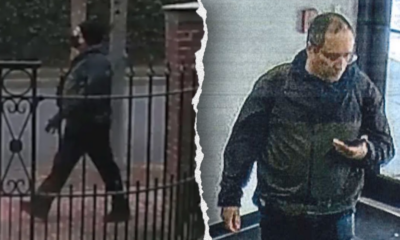With lots of legislators, New Hampshire gets lots of proposed laws.
As the New Year approached, the 400 members of the House and 24 senators proposed more than 1,140 potential bills in the form of Legislative Service Requests, or LSRs. Many deal with high-profile subjects like school funding, but a hunt through the list finds plenty of intriguing topics that don’t get as much attention.
You can search the list online at gc.nh.gov/lsr_search/.
Here are a few. Many of these, perhaps most, will never even make it to a full legislative vote, so don’t expect them to become laws any time soon.
- SB 519 titled “relative to the use of unmanned aerial systems.” (LSRs often have vague and unhelpful titles. The SB means Senate Bill and HB is a House Bill.) This would create civil penalties for using drones to “conduct surveillance over private property without written consent from the property owner, in any … location where an individual cannot be observed from a public ground-level position.”
- HB 1457 allows for “the natural organic reduction of human remains” — in other words, composting dead people. This is an allowable alternative to burial or cremation in many states. You can get the compost from a loved one delivered to you for use in the yard.
- HB 1149 takes up the perennial topic of clocks. It says, “New Hampshire shall abolish daylight savings time once Massachusetts, Vermont, Rhode Island, and Maine have all voted to do so.” However, this is the first year in a while in which no LSRs seek to move us to a different time zone.
- SB 540 would allow people to have “balcony solar,” or individual solar panels that can be plugged straight into a socket without permits or electricians. They are very popular in Germany and several states are weighing their use, including Utah which has already gone ahead.
- SB 628 lets highway authorities “license curbside electric vehicle charging devices in public rights-of-way.”
- SB 455 requires health plans to cover GLP-1 medications — the miraculous new weight-loss drugs — under certain circumstances. This is a big fight in health care because of the cost involved which has led many insurers to not cover the medication.
- HB 1128 and HR 35 both take aim at “weather modification technologies” such as seeding clouds to make it rain. This topic has long been entangled with the incorrect conspiracy theory known as chemtrails. HR 35, which is a non-binding resolution, also wants to ban “geoengineering activities” such as injecting aerosols into the atmosphere to deflect sunlight, touted by some as a last-ditch attempt to reduce the damage of climate change.
- HB1013 “prohibits games in which the object is to capture a pig.”
- HB 1283 “prohibits the use of face recognition technology subject to certain exceptions.”
- HB 1589 “establishes the Digital Choice Act, which requires social media companies to provide users with access to their personal data and enable data sharing across platforms through open protocols and user-controlled interoperability interfaces.”
- HB 1367 makes doxxing a crime. That’s the public release of personally identifiable information about an individual or organization without their consent, usually done online.
- HB 1785 would renumber the exits on our interstates by mileage rather than sequentially, so you’d get off at Exit 39 in Concord (that’s how far it is from the border) rather than Exit 15. New Hampshire is one of the few states, all in the Northeast, that don’t use mileage on exits.
- HB 1544 would prohibit “the use of scented products in public areas of state buildings.“
- HB 1015 requires “disclosure of Japanese knotweed in real property transactions.” That invasive plant is almost impossible to get rid of and is so destructive that it can damage building foundations.
- SB 632-FN “authorizes Concord-based nonprofit entities to install one advertising device near Exit 12 on Interstate 93 for the sole purpose of promoting nonprofit events and destinations in downtown Concord.” Nobody said laws always have to involve big, important stuff.
- Several LSRs concern categorizing and buying wood for construction, a reflection of business interests in the second-most-forested state. Some are straightforward — SB 529 gives preference to lumber sourced in the United States on state-funded building projects — but others are less obvious. That includes SB 503, which has more sponsors than almost any LSR, “promotes the use of New Hampshire-grown spruce-pine-fir lumber by specifying that spruce-pine-fir (SPF) lumber shall include spruce-pine-fir-south (SPFS) lumber within the New Hampshire building code.”
- HR 45 urges Congress “to find that the Piscataqua River and Portsmouth Harbor lie within the state of New Hampshire.” Take that, Maine!











































